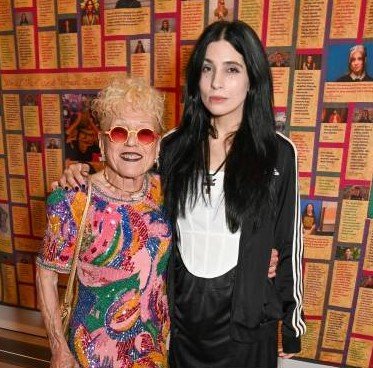Prominent artists Judy Chicago and Nadya Tolokonnikova are under fire from over 50 cultural figures who demand they pull their joint exhibition from the Tel Aviv Museum of Art amid the ongoing Israel Gaza conflict. The show, which opened recently in 2025, explores feminist themes but critics argue it ignores violence against women in Gaza.
The Spark of Controversy
A group of more than 50 artists and activists released an open letter this week, urging Chicago and Tolokonnikova to cancel the exhibition. They claim the project whitewashes Israel’s actions in Gaza, where thousands of women and children have died since late 2023.
The letter highlights data from UN Women, noting over 28,000 women and girls killed in Gaza by May 2025. Signatories include well known names in the art world who support social justice causes. They argue that hosting the show in Israel contradicts the artists’ feminist values.

Protests like this have grown common in 2025, with similar calls targeting cultural events linked to Israel. For instance, a film festival in Belgium pulled a documentary about Gaza earlier this year due to activist pressure.
Background on the Exhibition and Artists
The exhibition, titled What if Women Ruled the World, is a collaborative quilt project started in 2022. It invites people to share ideas on a world led by women, asking questions like whether violence would end or if gentleness would prevail.
Judy Chicago, an American feminist icon, has championed women’s rights since the 1970s. She created landmark works like The Dinner Party and founded the first feminist art program in California. Nadya Tolokonnikova, from Russia’s Pussy Riot, gained fame for bold protests against oppression, including time in prison for her activism.
Their partnership blends art and activism, but the Tel Aviv venue has drawn backlash. The museum presented the work with permission, though Tolokonnikova says she stepped back from decisions on locations.
This is not the first time their project has toured. It appeared in places like New Mexico and Austria in 2025, focusing on global feminist dialogues without major controversy until now.
Responses from Key Figures
Tolokonnikova responded quickly, stating she launched the project but no longer handles its placements. She emphasized her commitment to fighting injustice everywhere, including in conflict zones.
Chicago has not commented directly, but a museum spokesperson noted both artists approved the show indirectly. The Tel Aviv Museum of Art director, Tania Coen Uzzielli, defended the exhibition. She said the institution opposes the war and uses art to highlight suffering, rejecting cancellation as unhelpful.
Critics remain unmoved. They point to broader boycotts, like those from the BDS movement, which have influenced artists to skip events in Israel.
| Key Responses to the Controversy |
|---|
| Figure |
| Judy Chicago |
| Nadya Tolokonnikova |
| Museum Director |
| Letter Signatories |
Broader Impact on Art and Activism
This dispute reflects growing tensions in the art world over political conflicts. In 2025, several exhibitions faced protests, including one at a New York museum accused of Zionist bias. Activists argue cultural events can normalize state actions they see as unjust.
On the flip side, supporters say boycotts limit free expression and dialogue. For feminists like Chicago and Tolokonnikova, the situation tests how art intersects with real world crises.
- Similar cases in 2025 include a London gallery canceling a Russian artist’s event due to her stance on October 7 attacks.
- A Whitney Museum performance mourning Gaza victims was halted, citing content concerns.
- Protests at film festivals have led to withdrawals, showing a pattern of cultural boycotts.
Experts note that such calls can pressure institutions but also spark wider debates on ethics in art.
What This Means for Feminism Today
The controversy questions if feminist art can stay neutral in global conflicts. With over 40,000 total deaths in Gaza reported by health officials in 2025, many see silence as complicity.
Yet, the project aims to imagine a better world, which some defend as vital amid turmoil. Logical reasoning suggests cancellations might isolate voices rather than foster change, but activists push for accountability.
Related events, like Pussy Riot’s paused Los Angeles installation due to protests, show Tolokonnikova’s work often stirs debate. As feminism evolves, balancing ideals with geopolitics remains key.
Looking Ahead
The exhibition continues for now, but pressure could mount. Observers watch if more artists join the call or if the museum adjusts its approach.
This story informs readers on how art and politics collide, offering insights into current trends. Share your thoughts in the comments below or spread the word on social media to join the conversation.
